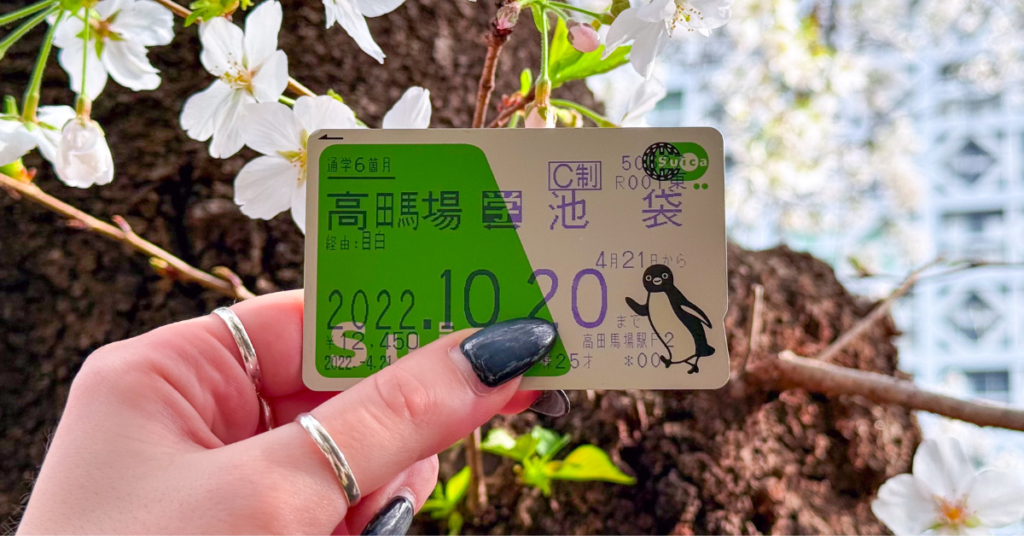If your long-term goal is to work in Japan, there are a few essential things you need in order to make that dream a reality.
From having an excellent grasp of the language to understanding Japanese business etiquette, here are the top things you must have in order to work in Japan.
A high level of Japanese language skill
One of the first steps to successfully finding work in Japan is to have the language skills necessary to communicate with your peers, boss, and potential customers.
The vast majority of full-time roles in Japan will require a high level of Japanese – at least JLPT N2, but preferably N1 – and your salary may depend on what JLPT level you are.
If you don’t already know Japanese, you should expect to spend about two years studying full-time at a Japanese language school in order to reach JLPT N2. The most effective way of learning a new language is to study it in a country where it is spoken – learn more about the benefits of immersive learning in our article here. Go! Go! Nihon can also help you find the right language school for your career and work goals.
It’s true that there are some jobs that don’t require a high level of Japanese or any Japanese at all. These include teaching English or another language and working in software engineering. However, not knowing Japanese means you’re more disconnected from your colleagues and it becomes harder to build camaraderie and trust when you can’t communicate in the same language.
On top of this, life in general is harder without the right language skills, especially if you don’t live in a major city. Seeking medical help, making Japanese friends, and renting an apartment without good Japanese skills will make your life harder than it needs to be.
Japanese is not an easy language to learn at a high level, but it is well worth it if you want to build a career and find a fulfilling job in Japan.

At least a Bachelor’s Degree
Having at least a Bachelor’s Degree is crucial to being able to work in Japan. Even if you find an employer who is willing to hire you and sponsor your work visa without a university degree, there is a chance that Japanese Immigration will deny your application.
The only other way you could work in Japan without a degree is if you have at least 10 years of professional experience in the field corresponding to your work visa category. These categories include Engineer, Journalist, Medical Services, Legal, Skilled Labor, and more.
We recommend those who don’t already have a university degree from their home country to invest their time and resources into learning Japanese at a language school, and then attend university or a vocational college in Japan. Most tertiary education courses in Japan are taught in Japanese, so here is another instance where learning the language is crucial.
However, there are E-track options for those who wish to gain a Bachelor’s Degree in English from a Japanese university. Ritsumeikan Asia Pacific University, based in Beppu, Kyushu, allows students to access three of their degree courses in English, while learning Japanese at the same time. These degrees are the Bachelor of Business Administration, Bachelor of Social Science, and Bachelor of Sustainability and Tourism. Read more about this university on our website.
Note that a degree from a vocational college from your home country will not be enough to secure a work visa in Japan.
Learn more about the process of getting a university degree in Japan in our article here.
A Japanese resume
There is a high likelihood that you will need a Japanese resume when applying for work in Japan. This means a resume written in Japanese in the style that is expected by Japanese companies. It can’t just be a direct Japanese translation of your existing resume.
Some of the main differences between Japanese and Western resumes include:
- A headshot: it’s standard to add a professional headshot to your Japanese resume
- Personal information: Japanese resumes often require you to include your date of birth, gender, dependents, marriage status, and commuting time
- Resume layout: you should ensure your Japanese resume is in the same style as others (don’t worry, there are templates available to help you with this!)
Read more in our article about how to write a Japanese resume.

A good suit and business attire
First impressions matter and you’ll want to do everything you can to make sure you are tidy and presentable when going for job interviews. That’s why having a good suit is so important to securing work in Japan.
If interviewing for “traditional” industries such as finance or law, you need to dress as conservatively as possible. For men, this means solid dark suits – think black, navy and dark gray. Wear a white shirt, with a simple tie, dark colored socks, and black or dark brown dress shoes.
For women, wear a dark colored business skirt with a matching suit jacket and a white blouse. It’s commonplace to wear nude-colored sheer tights. Wear black or navy court shoes – no high heels, platforms, or open-toed shoes.
Learn more about Japanese business attire in our article.
An understanding of Japanese business etiquette
This isn’t necessarily a must-have, but your work life in Japan will go considerably smoother if you take the time to learn about common etiquette in Japanese workplaces.
This includes knowing how to use honorifics and speaking keigo, how to acknowledge your colleagues’ hard work, business card etiquette, and more.
We know this can be hard to learn if you haven’t yet worked for a Japanese company. That’s where our online business Japanese courses come in. Together with the Intercultural Institute of Japan, we offer two courses that teach you the essentials for thriving in a Japanese workplace.
Learn more about the courses here.

Prepare to work in Japan with Go! Go! Nihon
As you can see, the must-haves of finding work in Japan revolve around knowing the language and culture. One of the best ways of gaining that knowledge is to live and study in Japan.
Go! Go! Nihon has more than a decade of experience helping people from all over the world successfully apply for a language school, and to realize their dreams of living and studying in Japan. Most of our partner schools have a special focus on helping students reach their goals of further education and/or working in Japan, so you know you’ll be in the right hands with your language education from the start.
Contact us to find out how we can help you.













